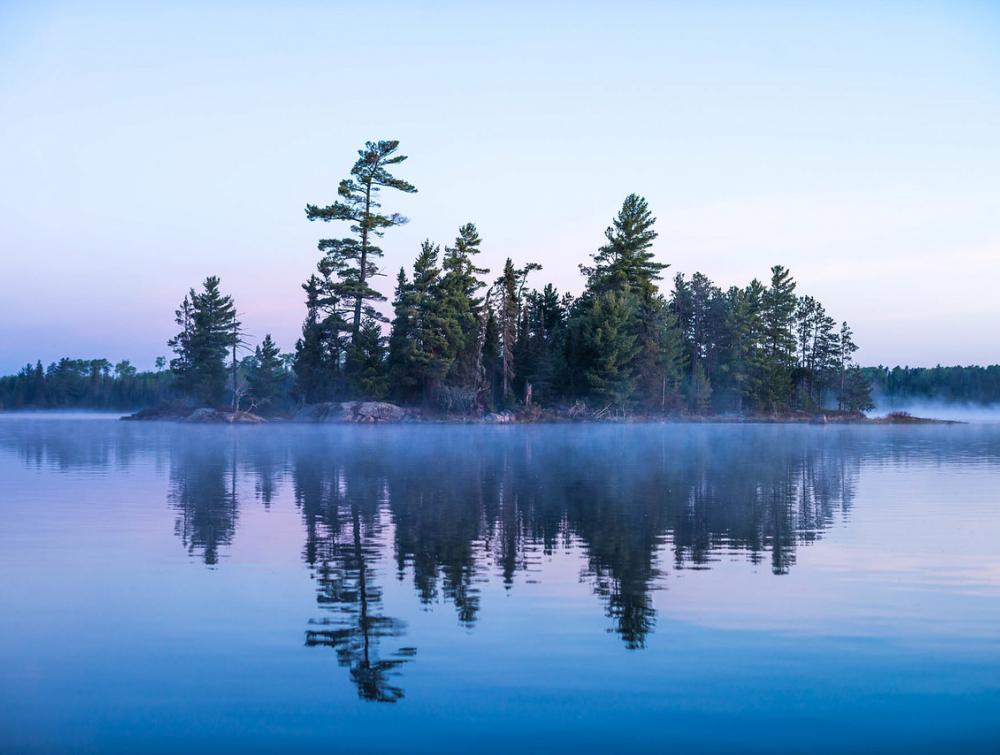Trump clears way for toxic mine in Boundary Waters watershed

Boundary Waters Canoe Area, MN
Erik Fremstad
WASHINGTON, June 29, 2020 ----- Today the Trump administration initiated the process for approving a toxic copper mine in the headwaters of the Boundary Waters Canoe Area Wilderness in Minnesota, the most visited wilderness area in the U.S.
The Bureau of Land Management issued a notice of intent to prepare an environmental impact statement on a proposed mine plan of operations by the Chilean-owned mining company, Twin Metals Minnesota.
Statement from Alison Flint, Senior Legal Director, The Wilderness Society
“The Trump administration is basically pressing ‘go’ on the last federal hurdle between a pristine Boundary Waters and a toxic mine. Rather than taking the time to gather data and information necessary to do a thorough, science-based analysis and transparent public process, the administration is continuing its rush to authorize this mine at the expense of the clean water, beloved wilderness and sustainable economy of northeastern Minnesota. Minnesotans have much more important matters to focus on right now – including responding to calls for racial justice and an end to police brutality as well as COVID-19. Yet, the Trump administration moves ahead with a politically motivated advancement of a mine plan that the public widely opposes and that the state DNR declared was incomplete just last week. All the while, they continue working to finalize a host of devastating environmental rollbacks. This mine may be an early, dangerous test case for an eviscerated National Environmental Policy Act.”
The Wilderness Society and other conservation groups have opposed this mining proposal for years and continue to challenge the mine in court and before the federal agencies charged with stewarding the Boundary Waters and its exceptional resources. In recent months, under the cover of COVID-19, the administration has suppressed public input and science-based analysis, part of its effort to undermine the National Environmental Policy Act, the “Bill of Rights” for the environment.
Additional concerns
- The mine’s pollution would harm the outdoor recreation economy concentrated around this world-famous canoeing, camping and fishing destination.
- Twin Metals has promised investors a far more extensive mining plan for the region.
- The mine owner, Andrónico Luksic of Antofogasta, has a personal relationship with the Trump family, leasing a Washington, DC mansion he owns to Ivanka Trump and Jared Kushner.
- The Minnesota Department of Natural Resources announced that the Mine Plan is incomplete and has asked the company to address the information gaps, yet the US Bureau of Land Management is aggressively moving ahead.
- Copper sulfide mining carries a very high threat of water pollution – much greater than that of iron mining. While there has been a history of iron ore mining in the region, there is no history of copper sulfide mining in the Boundary Waters region.
Background
The Boundary Waters Canoe Area Wilderness contains 1,200 miles of canoe routes and more than 1,000 lakes left by receding glaciers. The pollution resulting from the proposed Twin Metals mine would inevitably harm the water quality and ecology of these protected public lands and waterways.
The surrounding Superior National Forest holds 20 percent of the freshwater in the entire national forest system, and provides habitat for imperiled species such as lynx, moose and wolves. The local economy ― which is sustained by tourism and jobs connected to this fishing, canoeing, and camping mecca ― would also suffer if mining was allowed.
The U.S. Forest Service has recently opposed renewing the Twin Metals mining leases. In 2016 the Forest Service found that developing a copper-nickel sulfide ore mine in this location would pose an “unacceptable” risk and that the mine would “cause serious and irreplaceable harm” to the Boundary Waters.
In May 2019, the Trump administration renewed the mining leases on the basis of a cursory environmental assessment by the U.S. Bureau of Land Management that failed to consider the well-documented and devastating harm from sulfide-ore copper mining and failed to examine alternative options for lease renewal to increase protection. The assessment cited none of the dozens of scientific studies documenting those harms. For its part, the Forest Service failed to meet its obligation to ensure that lease renewals do not threaten the Boundary Waters, failing to explain how its approval would avoid the severe impacts it so recently disclosed.
A Minneapolis Star Tribune editorial, Not this Mine. Not this Location, noted that “a 2010 report by a Chilean nonprofit states that an Antofagasta-owned mine has ‘the biggest amount of toxic spills into the waters in the Region of Coquimbo,’ with the most ‘devastating’ incident involving a 2009 spill of copper concentrate into the Choapa River.”
The Wilderness Society, founded in 1935, is the leading conservation organization working to protect wilderness and inspire Americans to care for our wild places. With more than one million members and supporters, The Wilderness Society has led the effort to permanently protect 111 million acres of wilderness and to ensure sound management of our shared national lands. www.wilderness.org.
